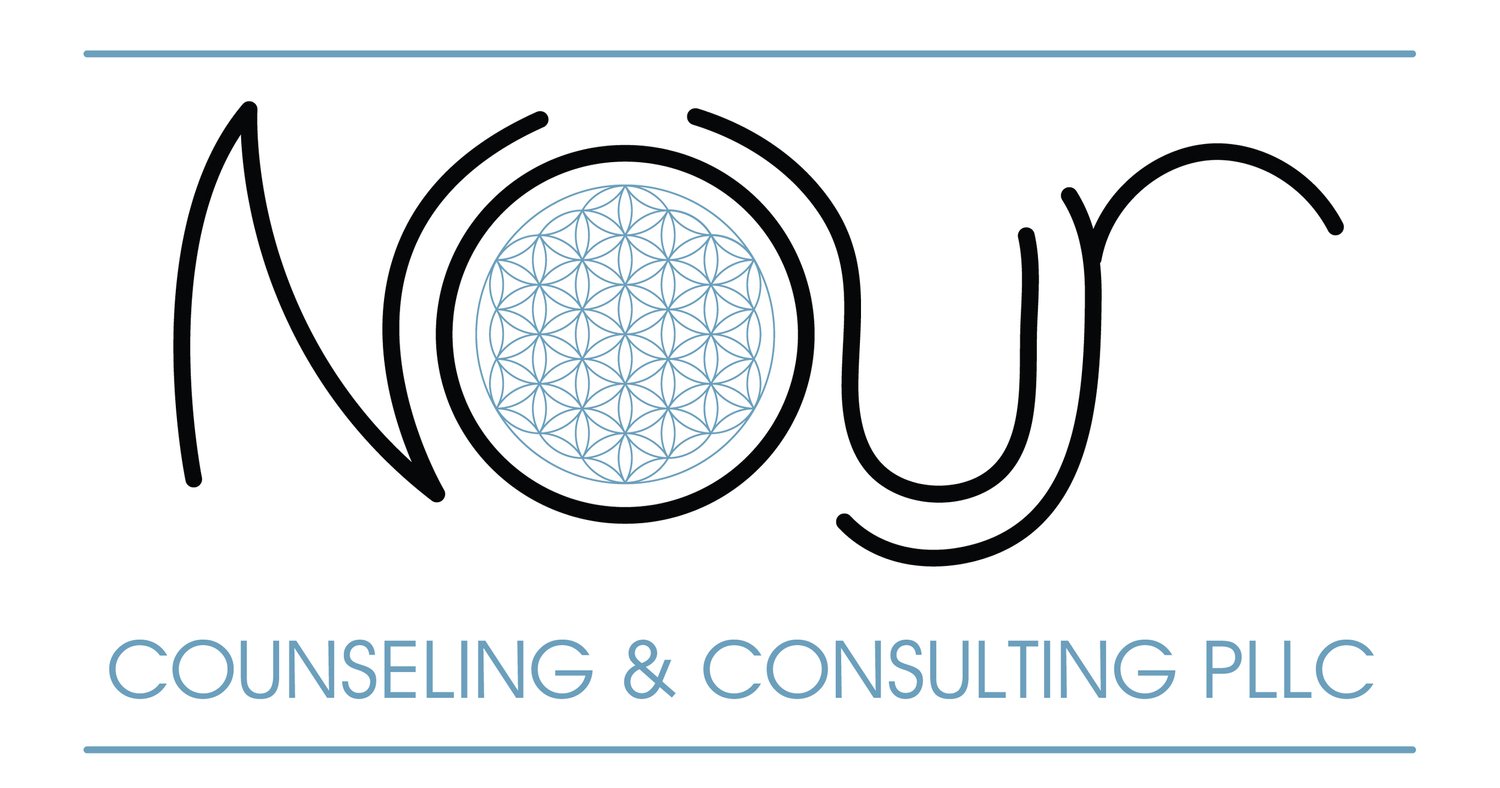Mona Nour
PhD, LCMHC-QS
Mona Nour (she/her) is a Licensed Clinical Mental Health Counselor, Qualified Supervisor, counselor educator, and the founder of Nour Counseling & Consulting, PLLC. She brings over 20 years of experience in counseling, teaching, and program development in schools and universities. Mona received her M.Ed. in 2005 and later earned a Ph.D. in Counseling from NC State University, where her research focused on belonging and identity development among bicultural individuals whose parents immigrated to the United States.
As an Egyptian American girl growing up in rural North Carolina, Mona experienced daily microaggressions and cultural disconnection. Questions like “What are you?” weren’t just harmful—they seeded doubt about her place in the world. Over time, that question evolved into a lifelong pursuit of discovering who she is beyond what others see or expect. This personal work laid the foundation for her professional interest in identity, belonging, and healing—eventually leading her to develop frameworks around universal identity and the parts of self we carry.
As someone who is AuDHD (Autistic and ADHD), Mona’s clinical work is rooted in helping clients navigate the relationship between their internal experiences and the external systems they move through. She blends deep reflection with education, using knowledge as a tool for clarity and empowerment. Her approach is grounded in liberatory therapy, which centers the impact of power, oppression, and culture on mental health. With a strong emphasis on psychoeducation, she helps clients understand not just how they feel, but why—and how to reclaim their voice in the process.
Mona specializes in working with adults across the lifespan, particularly those navigating neurodivergence, anxiety, identity development, and the effects of marginalization. She has a deep commitment to supporting individuals with layered and intersecting identities who are seeking both meaning and belonging in their lives.
Nour Counseling was born from Mona’s own lack of belonging in the mental health field—and from witnessing how many other clinicians, especially those with marginalized identities, were navigating systems not built for them. At the same time, she saw how clients were struggling to find care that was culturally grounded, values-driven, and emotionally attuned. In response, she created a space where both clinicians and clients could grow in community—a practice rooted in learning, liberation, and the belief that healing is both personal and collective.



